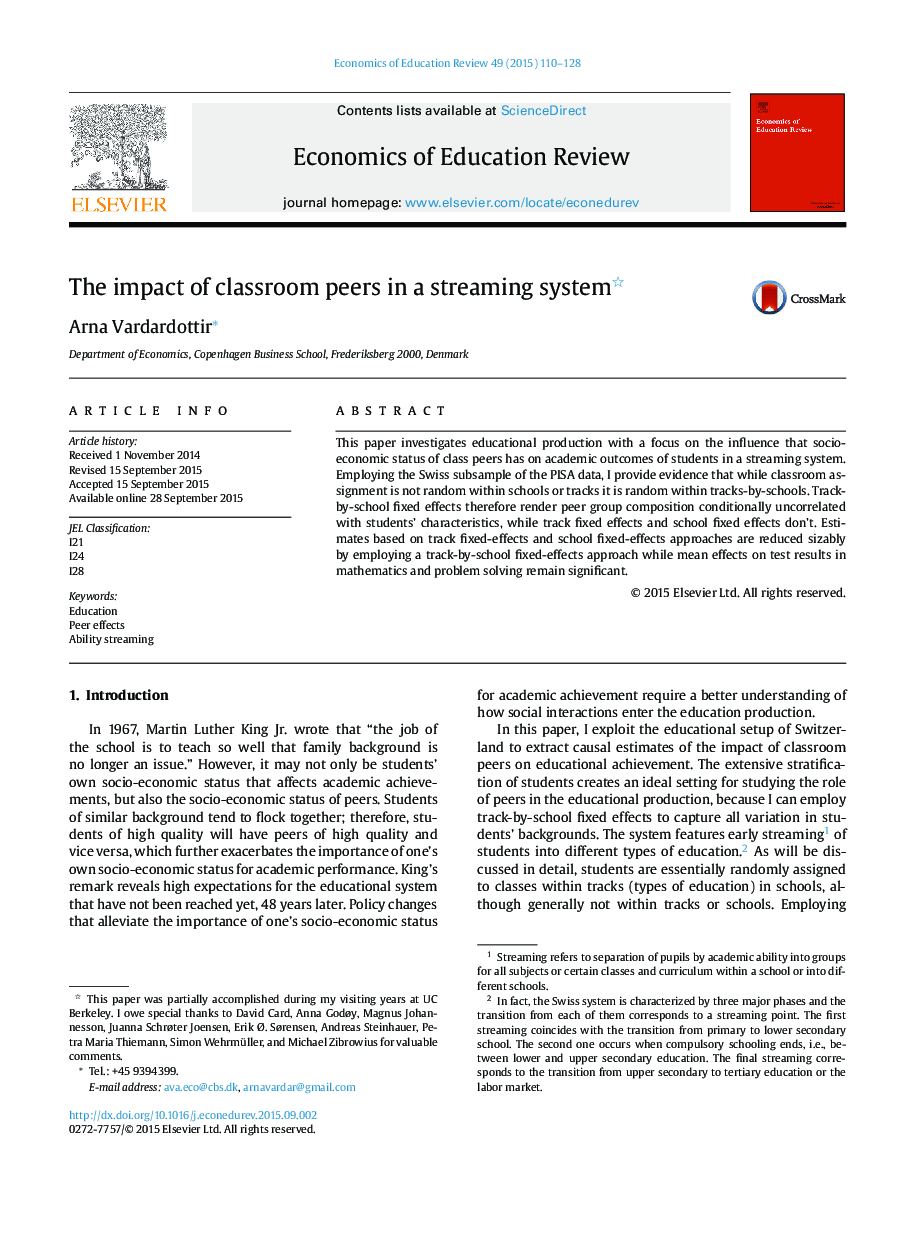| Article ID | Journal | Published Year | Pages | File Type |
|---|---|---|---|---|
| 354308 | Economics of Education Review | 2015 | 19 Pages |
•I exploit a segregated educational system to identify the impact of classroom peers.•Peers’ quality is measured by socio-economic status.•I look at effects on test scores in reading, math, science, and problem solving.•Track and school fixed effects estimates are reduced sizably by a track-by-school fixed effects approach.
This paper investigates educational production with a focus on the influence that socio-economic status of class peers has on academic outcomes of students in a streaming system. Employing the Swiss subsample of the PISA data, I provide evidence that while classroom assignment is not random within schools or tracks it is random within tracks-by-schools. Track-by-school fixed effects therefore render peer group composition conditionally uncorrelated with students’ characteristics, while track fixed effects and school fixed effects don’t. Estimates based on track fixed-effects and school fixed-effects approaches are reduced sizably by employing a track-by-school fixed-effects approach while mean effects on test results in mathematics and problem solving remain significant.
